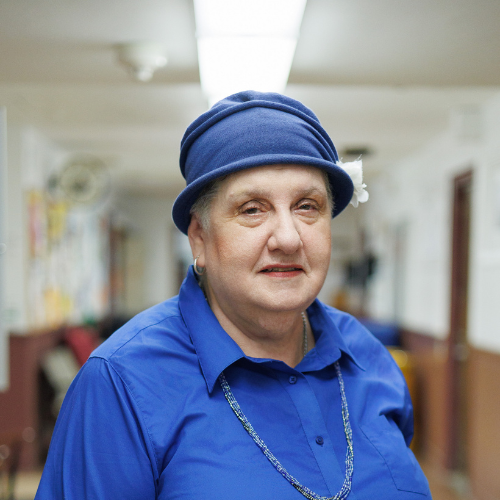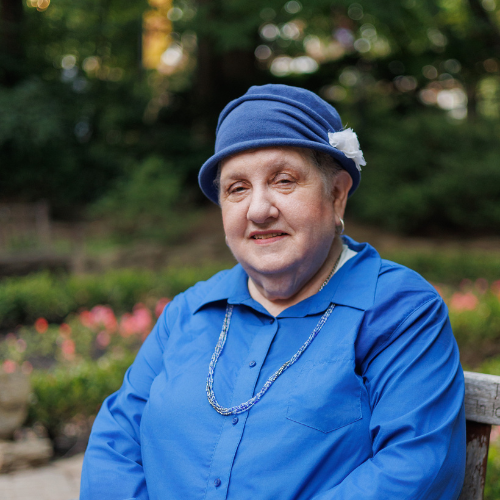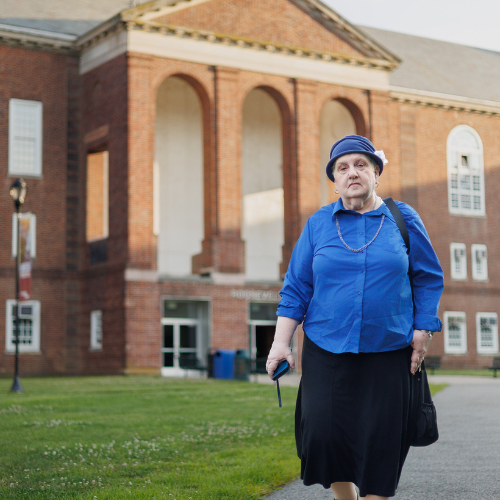Client Q&A:
Frimette Kass–Shraibman
Client Q&A:
Frimette Kass–Shraibman
Born and raised in Brooklyn, Professor Frimette Kass-Shraibman is an Orthodox Jew and lifelong Zionist. Frimette holds a doctorate from New York University and is a Certified Public Accountant. She has taught accounting for 25 years at the City University of New York (CUNY) and was one of six plaintiffs who sued the Professional Staff Congress union in Goldstein v. PSC/CUNY. The interviewee’s viewpoints are her own and do not necessarily represent those of the Fairness Center.
Client Q&A
How have Judaism and Israel shaped your life?
What are your views on unions?
But then I worked with a union rep, a really great person, who helped me when I was denied a promotion due to discrimination. At that point, I decided to become a union member and eventually a rep for my department. There were sometimes things that came down from the union that I felt were totally not right. At one point, they wanted us to get people to sign union cards with a clause saying that if you wanted to get out of being a union member, it could only be within 30 days of your annual anniversary of having signed the card. I threw them in paper recycling because I thought that was like a ball and chain. I just didn’t do it. So, I believe that there is a need for unionism, but I believe unions have to stay on the mark.
How did you respond when your union encouraged support for the BDS movement in 2021?
When the union came out with that statement, my kneejerk reaction was to get out of the union. Some of my colleagues started emailing each other to form a loose coalition, and Jeff Lax [later a co-plaintiff] helped us by preparing an exactly worded letter telling the union you want out. So, I used that letter, and I resigned from the PSC.
Why did you feel a lawsuit was needed if you had already left the union?
Initially, I just wanted as far away from the PSC as I could get. If they’re supporting those that want to kill me, how are they going to represent me? Pitiful. But they do still represent me even though I’m not a member. I don’t want to have to associate with people who hate me.
At its core, what was your lawsuit about?
The union has essentially said they hate me. Why should I have to socialize with them, or do business with them? If you don’t like a store in your neighborhood, say the owner has been nasty to you, you don’t go back there. Why should I be forced to do that? It’s a fundamental injustice when you are required to associate with an organization that supports those who would seek to kill you and your loved ones. Getting the right for us to associate with who we want—that’s what my lawsuit was working towards.
What has the reaction on campus been to your lawsuit?
I have gotten contacts from people who stayed in the union, who weren’t aware of all that was going on, and they’ve said, you know, I’ve just found this out, or they just did something to me. And I heard you’re part of this group that’s fighting this in the union. What should I do? So, I’ve become somewhat of a lightning rod for people who are starting to see these things, feel uncomfortable about it, and want to know what to do, where to go.
Has the union tried to win you back?
After October 7, I think the anti-Semitism has been ramped up. Campuses are scary places, now. This past spring, the union was going to come out with another resolution in support of the Palestinian people and Hamas and against Israel, just to a higher level. But some cooler heads said, no, we’ll lose even more membership and will be in more trouble financially. It didn’t pass, but not because of philosophical reasons. It didn’t pass because of business.




